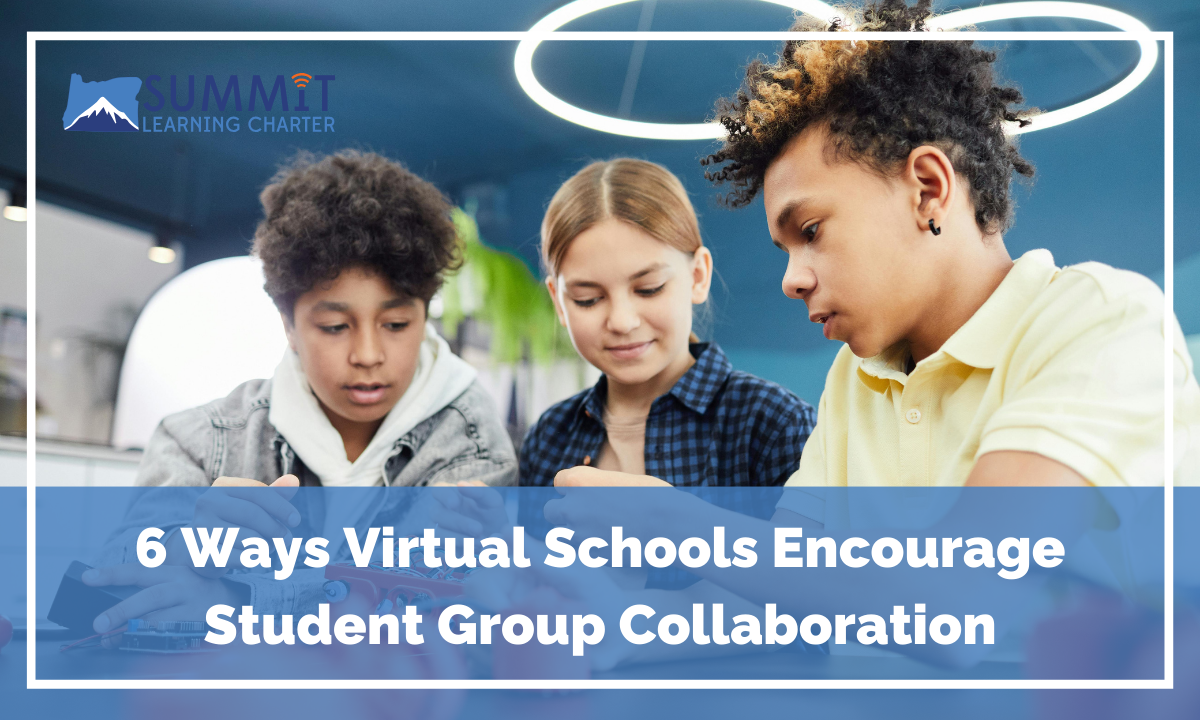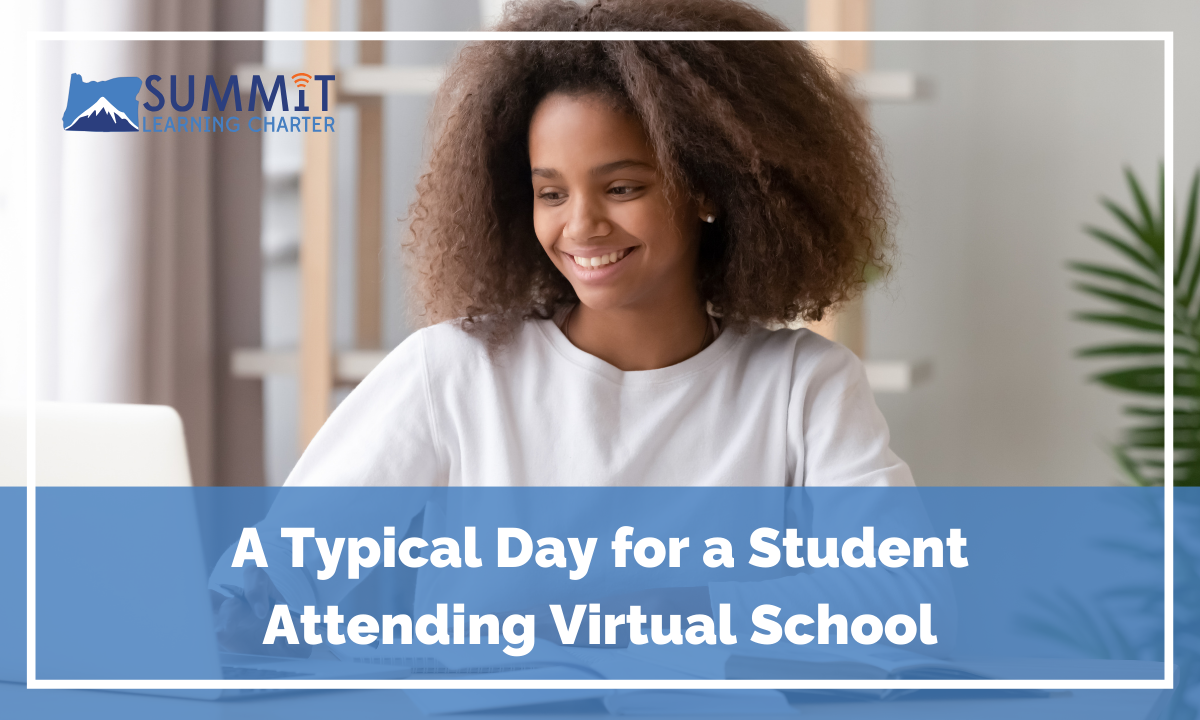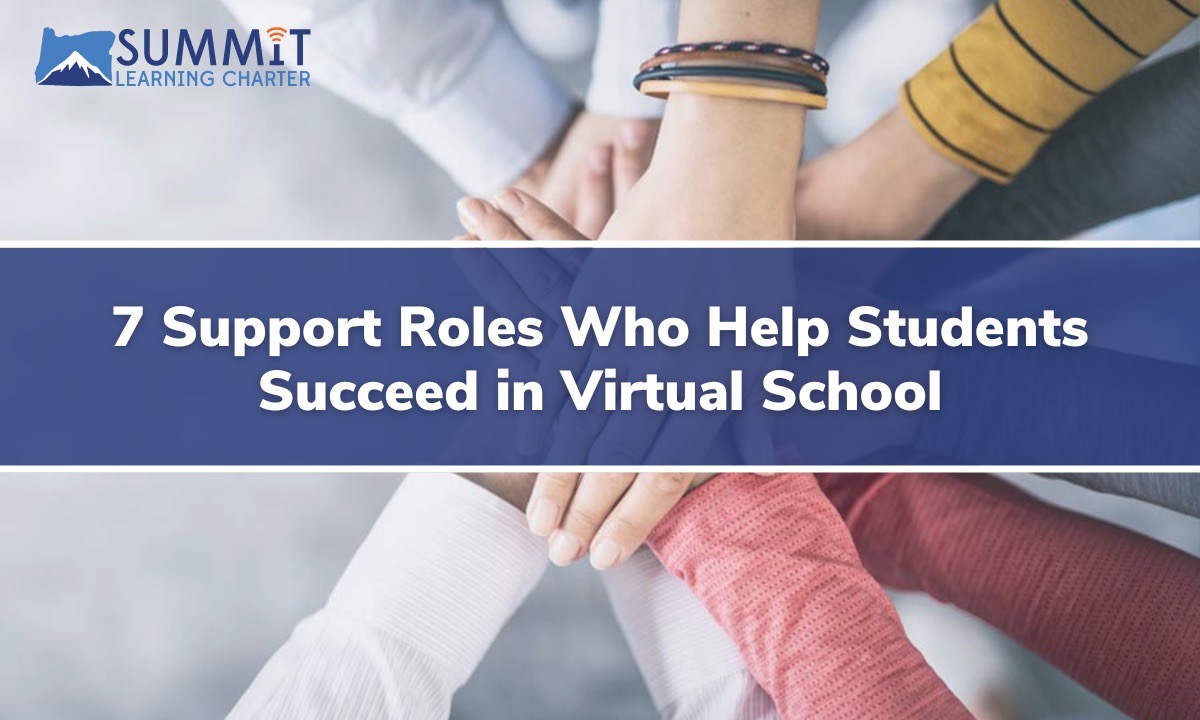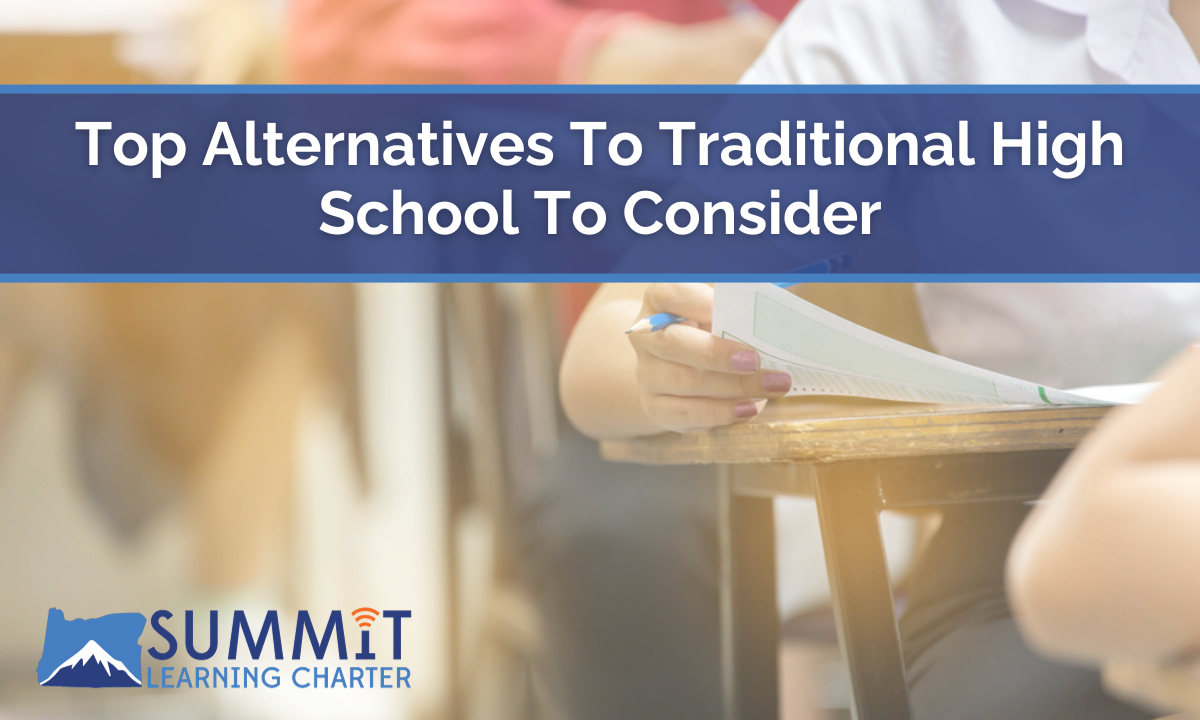
Top Alternatives to Traditional High School to Consider
Students learn differently from one another, benefit from different types of instruction, and have different academic and career goals. The traditional one-size-fits-all model of education doesn’t accommodate the unique needs of every student.
Fortunately, traditional high school is not the only option. Students, teachers, and education experts are embracing alternative high school options. Colleges and universities are also increasingly interested in online learners and students with unique educational backgrounds.
Non-traditional high school programs offer diverse opportunities to students of all kinds and from all backgrounds. Whether your student is approaching high school age or they’re unhappy in their current school environment, we’ve got you covered. We’re breaking down the very best alternatives to traditional high school!
Signs Alternative High School Options May Be Good for Your Student

As is the case with any large institution, there are pros and cons to attending traditional high school. Some students thrive in this type of standardized educational and social environment. But many students don’t. At SLC, we embrace the uniqueness of each learner and strive to empower students and their supporters and mentors to take an active role in their education.
Here are a few signs that your student may benefit from a non-traditional high school program:
- They feel unhappy in their current school environment.
- They’re not performing well in some or all of their classes.
- They feel bored or unchallenged in their classes because they’re gifted.
- They want to be more independent.
- They have special needs that aren’t being accommodated.
- They need more flexibility in their schedule.
- They’re struggling with the social aspects of high school or are experiencing bullying.
1. Virtual School

Many families were first introduced to the world of online education during the Covid-19 pandemic. But the popularity of virtual learning continues to expand rapidly, with millions of students making the switch to online high school.
Virtual academies like SLC offer an effective blend of expert instruction and self-directed learning. As an accredited public high school in Oregon, SLC gives students comprehensive education without the outdated one-size-fits all approach of traditional classrooms.
Here are a few key benefits of online learning:
- Flexibility – Students can learn anywhere and at any time, giving them the freedom to learn at their own pace without sacrificing their other responsibilities.
- Individualized learning – Virtual classrooms are designed to accommodate different learning styles, providing teens with the chance to learn in a way that works for them.
- Increased support and involvement – Because students can work from home, their Learning Coach can offer the one-on-one attention they need to work through challenges and stay on track.
- Valuable skill building – Online learning teaches students valuable skills they can take with them throughout their lives such as self-discipline, adaptability, time management, and more.
For students who want to enjoy the advantages of online high school as well as the social and practical benefits of in-person instruction, SLC also offers blended learning options to suit each individual’s needs.
2. Private School
Families looking for alternative high school options may be wondering if private school is worth the financial investment. This, of course, depends on student needs and the accessibility of nearby institutions. Because private schools require tuition fees, they may offer more specialized or personalized learning options.
Private schools generally have smaller class sizes and more varied course schedules and extracurricular activities. However, they can also be expensive and offer less diversity than other options.
3. Homeschooling
Homeschooling may offer the most flexibility of any alternative high school option. Generally, homeschooled students are taught by a parent, guardian, other family member, or a professional tutor. This approach offers your student the opportunity to try a range of teaching strategies and connect with a unique community of fellow homeschoolers through meet-up groups and co-ops.
Homeschooling as a high school alternative offers many benefits. However, you’ll want to look into your local homeschooling laws to ensure you’re meeting educational standards. It’s also important to consider the advantages of obtaining an official high-school diploma and ensuring your student has a full academic experience. While some colleges and universities do accept homeschool transcripts as alternatives to traditional diplomas, options may be limited.
Many homeschooled students in Oregon choose to take a standardized test to earn their General Equivalency Diploma (GED), which is generally recognized as an academic equivalent.
4. Boarding School
Boarding schools offer students a traditional education as well as room and board during the school year. Living on campus can provide students with a unique opportunity for educational development, independence, and community. However, some students will have to contend with homesickness and sky-high tuition costs may make boarding school cost-prohibitive for many families.
In addition to traditional private boarding schools, military schools also offer an on-campus experience with military values and procedures playing a core role in student life. Military school can be an excellent option for those who want to prioritize discipline, self-sufficiency, and structure in their student’s education.
5. Vocational-Technical School
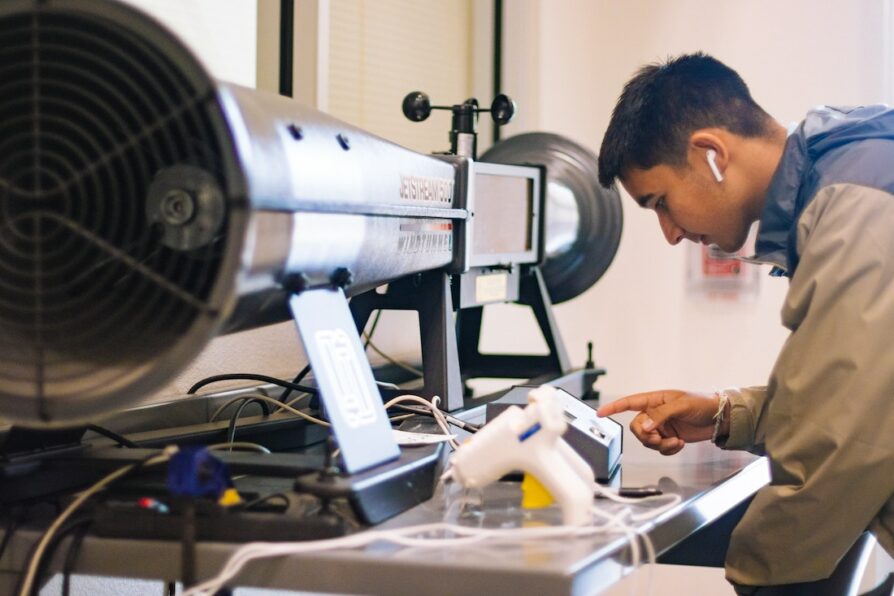
If your student is passionate about a particular career field, a vocational-technical high school may be worth considering. Vocational-technical (or “vo-tech”) schools are specialized programs designed to teach students about a particular skilled trade. These schools are sometimes accessible through the local public school system and typically involve a combination of traditional high school subjects (English, math, science, etc.) and specialized subjects.
Vocational-technical schools offer the opportunity for hands-on experience and prepare students for a successful career in a particular trade after they graduate. Some of the most popular vo-tech programs include:
- Health sciences
- Agriculture
- Food and natural resources
- Business administration and management
- Technology and communications
- Law and public safety
6. Virtual or In-Person Charter School
Charter schools have existed in the United States in some form since the early 1970s. They’re technically public schools. That means they’re publicly funded and required to adhere to the same educational standards as traditional public high schools. However, they have significantly more flexibility in terms of curriculum and format.
Teachers at charter schools can incorporate a much wider range of teaching styles, and students typically have more flexibility in terms of what they study and how. Like other public schools, charter schools are generally free to attend. They may also be in-person, virtual, or hybrid.
How to Talk to Your Student About Switching Schools
Even if you’re completely sure it’s the right choice, switching schools is a big deal. It’s important to approach this topic with sensitivity and be ready to listen to your teen’s feelings about the possibility of making the transition to alternative schooling.
If possible, try to approach the conversation with an open mind and discuss all possibilities with your student as opposed to forcing the discussion in one direction or another. Topics to discuss include:
- Core curricula
- Specific interests and elective courses
- School culture
- Future educational, career, and life goals
- Extracurricular activities
- Socialization and making new friends
- Instructors and class sizes
Take Control Of Your Education and Your Future with Summit Learning Charter!

Whether your student is currently enrolled in a school that isn’t working for them or you’re just exploring your options, we’re here to help! At SLC, we’re committed to providing students and everyone in their support systems with the tools, resources, and encouragement they need to take an active role in their education and reach their personal goals.
Our exceptional teachers and welcoming counselors are here to answer all your questions and help you throughout the entire application and enrollment process. Learn more about academics at SLC, find out the answers to our frequently asked questions, and contact us to find out if SLC is right for you!
